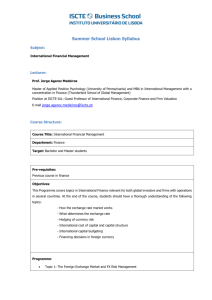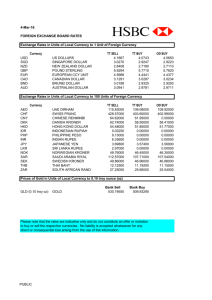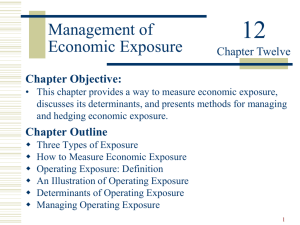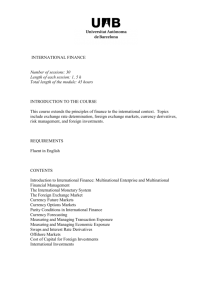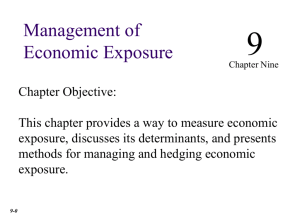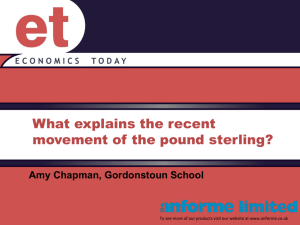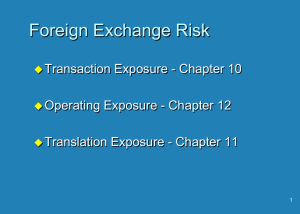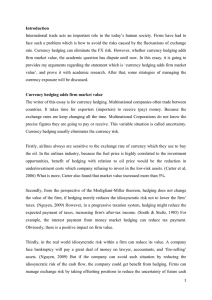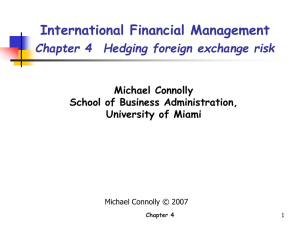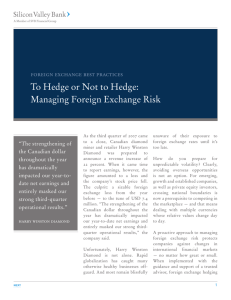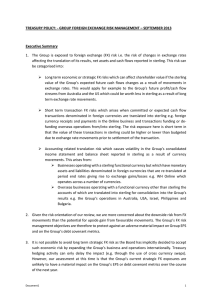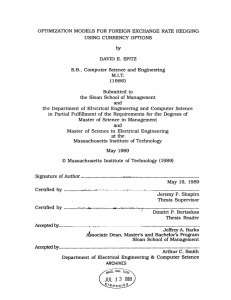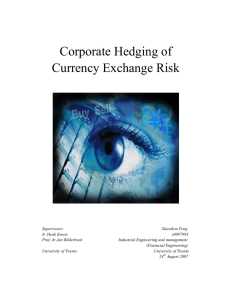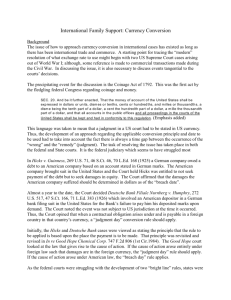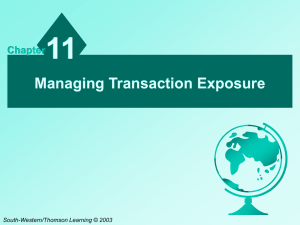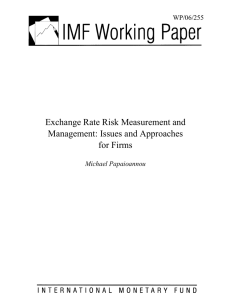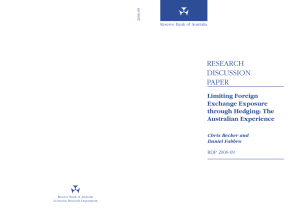Table of Contents
advertisement
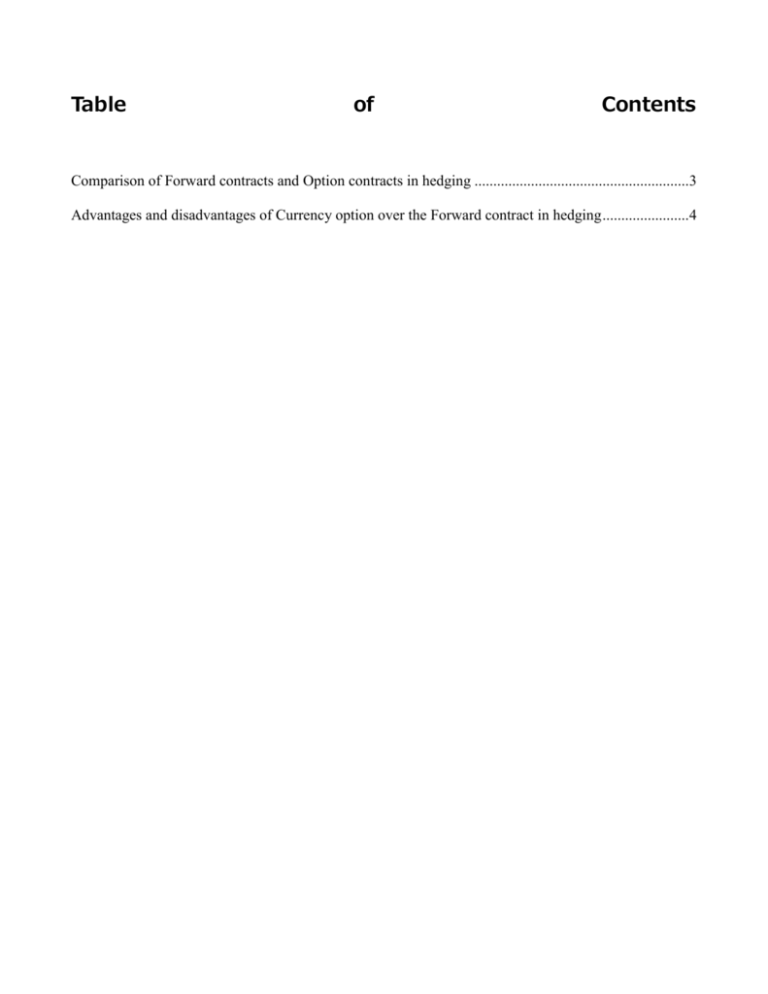
Table of Contents Comparison of Forward contracts and Option contracts in hedging .........................................................3 Advantages and disadvantages of Currency option over the Forward contract in hedging .......................4 Comparison of Forward contracts and Option contracts in hedging A Forward contract is an over the counter (OTC) agreement to buy or sell an asset on a future date, at a rate agreed upon today. The price that is agreed upon today is the forward price. The party which buys the forward is said to be in a “long position”. It is customised and suffers from illiquidity and counter-party risk (Wang, 2003). An option contact is an exchange traded derivative instrument. It is an option to buy or sell an asset at a fixed price agreed upon today. Unlike forward contract, it is standardised and does not have any counter party risk. Also, in an option contract there is an “option” to buy or sell an asset without any “obligation” to do so, whereas in a forward contract the party is under the obligation to buy or sell. Suppose, a person in UK has a foreign currency payable after three months of $10000 and is afraid of dollar appreciating against pound. He can buy a 3 months forward contract of say ₤0.52/$. If after three months the rate of pound is ₤0.62/$, he will gain because through the forward contract he will be able to buy dollars at the forward rate of ₤0.52/$. But if the rate moves down, he cannot take the benefit of the favourable movement and is obliged to buy at the contacted rate of ₤0.52/$. He can also buy a 3 month call option on dollar. Suppose, he buys a call option at a strike price of ₤0.51/$. If at maturity the rate of pound is ₤0.50/$, then he can let the call option lapse and buy dollar from the market at a lower rate. Unlike, a forward contract he is not obliged to buy dollars at the strike rate. So, he will let the call option lapse and buy directly at the prevailing market rate. But if the value of pound depreciates against dollar i.e. if the rate of pound per dollar goes up to say ₤0.55/$, then he can exercise his call option and buy dollars at the strike price of ₤0.51/$. Advantages and disadvantages of Currency option over the Forward contract in hedging Currency option gives the holder the right to buy or sell currency at a fixed exchange rate without any obligation to do so. The right to buy the currency is known as call and the right to sell is known as put. It can be used for hedging any foreign currency exposure. It has the feature of limited risk and unlimited profit. Since there is no obligation, like in the case of forward contract, the holder of the currency option can also take the advantage of any favourable movement in the exchange rate. The disadvantage of the currency option is that it is expensive compared to the forward contract and also requires an upfront payment of premium(CSEM, 2008). References CSEM. 2008. Currency Options. [online]. Available at: http://www.thecsem.org/taxonomy/term/22/all [Accessed on 22 October, 2009]. Wang, J. 2003. Forward Contracts. Forwards and Futures. [pdf]. Available at: http://www.google.co.in/#hl=en&q=definition+of+forward+contract+in+hedging+site%3Aedu&meta= &aq=&oq=&fp=57680f28a3a40a6f [Accessed on 22 October, 2009].

